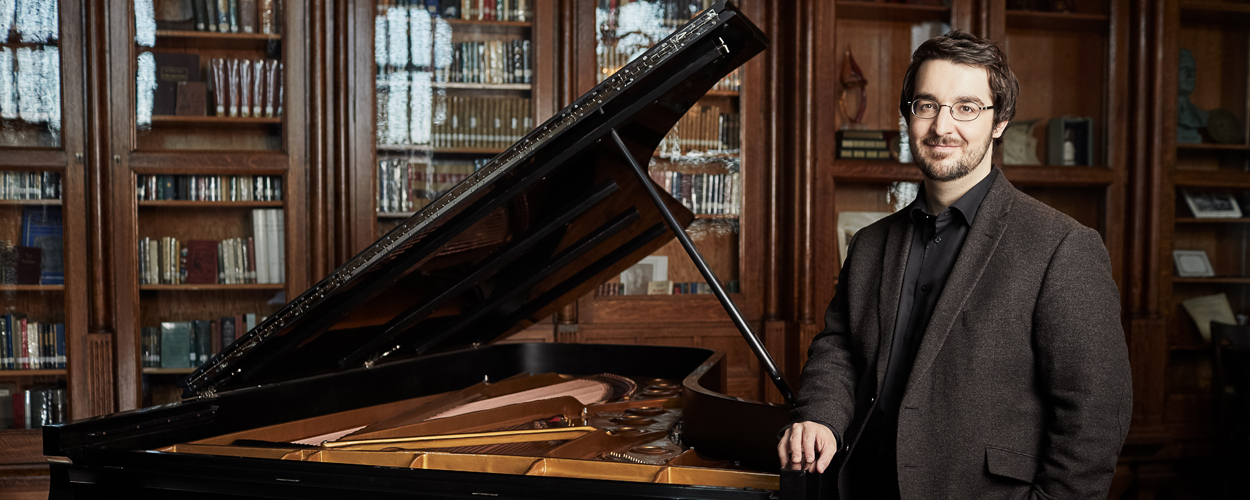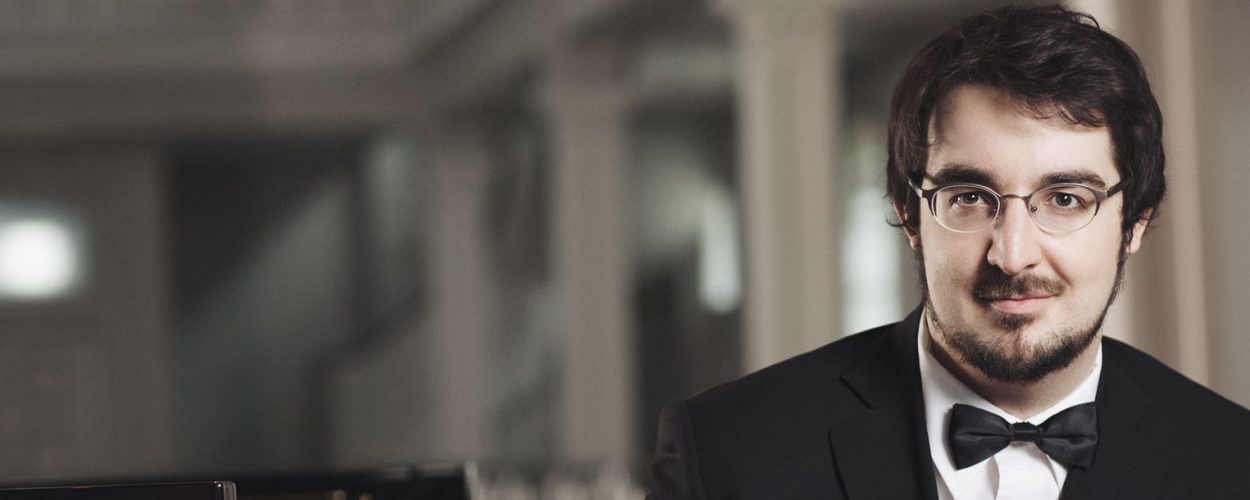Charles Richard-Hamelin has had a long-term love affair with Prokofiev. As the young Quebec pianist recounts: “Early on in my musical training, at the age of 13, I became fascinated with Prokofiev because his music was so thoughtful and interesting. He was also a chess champion, and it shows in his music!”

It was also Prokofiev who triggered Richard-Hamelin’s passionate interest in the piano, and in becoming a concert pianist.
When Richard-Hamelin was 17, his teacher asked him to work on a sonata by the Russian composer. After a while, not finding his performance very convincing, the teacher told him that the piece was no doubt too difficult for him and assigned something else. From then on, clearly stung by the experience, the young pianist decided to focus all of his efforts on his instrument. It was well worth the effort because he later proved to be one of the most talented pianists of his generation.
He says that when the OSM asked him to perform Prokofiev’s Concerto no. 3, op. 26, he was surprised, explaining “I haven’t played the piece for over 10 years, but am very happy to do so again!”
Richard-Hamelin will be performing the concerto three times for the Charles Richard-Hamelin and Russian Music concert, beginning on October 11.
And yet, Charles Richard-Hamelin’s name is more readily associated with another composer, Chopin. His mastery of Chopin’s repertoire is what earned him the 2015 silver medal and the Krystian Zimerman Prize at the International Frederic Chopin Piano Competition in Warsaw.
Even though he says this prize changed his life, it is only one of many awards received by the pianist from Joliette: Prix d’Europe, Révélation Radio-Canada in classical music, and first prize in the Toronto Symphony Orchestra’s National Piano Competition. His first CD won the Felix Award for Album of the Year in the Classical/Soloist and Small Ensemble category. This year, he was made a Companion of the Ordre des arts et des lettres du Québec (at the age of 28, he is the youngest person after Xavier Dolan to have received such a distinction).
This recognition underscores an impressive international career. In the past 12 months alone, he has performed in Germany, France, Italy, Poland, Switzerland, Japan and Singapore!

A talented pianist with great orchestral accompaniment
In his upcoming concerts in Montreal, Charles Richard-Hamelin will be putting all of his experience into playing Prokofiev’s Concerto no. 3, op. 26. He admits that “It’s a difficult work to play, because Prokofiev uses every one of the 88 keys on the piano, and I have to work my way very quickly from one end of the keyboard to the other!”
But the technical demands are worth it for music that he describes as luminous and exuberant. “What I find most remarkable in Prokofiev is his sense of harmony. He is extremely inventive in the way he aligns various sounds to produce original and unclassifiable effects.”
These can be somewhat dissonant. “Prokofiev takes pleasure in inserting momentary dissonances into a framework that is basically a very charming form of classicism. Thus, although there may be some jarring moments, they have a positive impact on the music!”
The pianist promises that the work featuring unusual sound effects suggestive of strange images as well as lengthy sections played at a compelling pace – like a train that can’t be stopped – will be an exciting one that will keep the audience on the edge of their seats.
The OSM is thoroughly familiar with this concerto, having played it several times and even recorded it. On this occasion, the orchestra will be led by Vasily Petrenko, a young guest conductor from Russia who has also recorded the concerto. He is the artistic director of both the Royal Liverpool Philharmonic Orchestra and the Oslo Philharmonic Orchestra.
Also on the program for the Charles Richard-Hamelin and Russian Music concert are Scriabin’s Poem of Ecstasy, op. 54, Debussy’s La mer and Ravel’s Mother Goose suite. The latter, inspired by the Mother Goose children’s stories, was initially composed as a piano duet for four hands to be played by children before it was adapted by Ravel as a symphonic work.
The concert will be presented at the Maison symphonique de Montréal on Wednesday, October 11 at 8 pm, Saturday, October 14 at 8 pm, and Sunday, October 15 at 2:30 pm.



